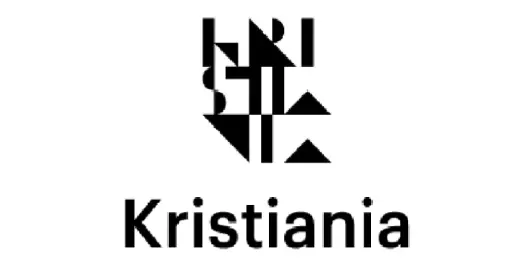Ledig stilling på Universitetet i Oslo
Blindern og Urbygningen (Foto: Wikimedia og Colourbox)
Post-Doctoral Research Fellowship - Department of Linguistics and Scandinavian Studies
Deadline: 10.09.2020
Universitetet i Oslo
The University of Oslo is Norway’s oldest and highest ranked educational and research institution, with 28 000 students and 7000 employees. With its broad range of academic disciplines and internationally recognised research communities, UiO is an important contributor to society.
The Department of Linguistics and Scandinavian Studies (ILN) is one of seven departments at The Faculty of Humanities (HF). The department conducts research, teaching and dissemination in general linguistics, Nordic languages (Scandinavian linguistics and Norwegian as a second language), multilingualism, medieval studies (Norse philology and Celtic), Nordic literature (including dissemination of literature and Ibsen-studies), and rhetoric and verbal communication. The Department hosts a socio-cognitive laboratory offering powerful equipment for various types of experiments and studies.
Job description
A Post-Doctoral Research Fellowship (SKO 1352) is available at the Department of Linguistics and Scandinavian Studies, University of Oslo.
The position is part of the UiO convergence environment ImmunoLingo (https://www.uio.no/english/ research/strategic-research-areas/life-science/research/convergence-environments/immunolingo/) led by Dr. Victor Greiff.
The convergence environment will set out to decipher the molecular language of adaptive immunity, which we call ImmunoLingo. Understanding Immunolingo is of incredible importance for the design and discovery of precision immunodiagnostics and immunotherapeutics. Our goal will be achieved by transdisciplinarily combining expertise of life sciences, machine learning, statistics and linguistics researchers. The fundamental hypothesis of ImmunoLingo is that there exists a meaningful structure in the amino acid sequence that defines what the receptor of an adaptive immune cell will recognize.
The candidate will use techniques from theoretical and computational linguistics to explore this structure. Relevant approaches include parsing amino acid sequences with multiple context free grammars based on grammar induction and engineering, semantic analysis of the discovered structures, and grammatical analysis of of individuals' immune repertoires. Much of this work will complement analysis based on deep learning within the project leading to fruitful combination of rule-based and machine learning-based methods. Sequence motifs in the immune system are known to be highly discontinuous and overlapping and an important goal of the project is to develop scaleable techniques for dealing with these phenomena also in natural language.
The candidate will join the linguistics group at the Department of Linguistics and Scandinavian Studies, which has a vibrant research community. He or she will also have the opportunity to work in cross-disciplinary groups with other ImmunoLingo researchers at the Department of Immunology, the Department of Informatics and the Department of Mathematics. The main supervisor of the candidate's work will be Dr. Dag Trygve Truslew Haug. Dr. Geir Sandve from informatics and dr. Victor Greiff from Immunology will be co-supervisors. Within three months of the start date, the successful candidate should have finalized a project description in collaboration with the supervisors.
The position is available for a period of 3 years. There is a 10 % component of compulsory work which will be assigned by UiO:Life Science in agreement with the project leader, contingent on the qualifications of the candidate.
The successful candidate is expected to become part of the research environment/network of the department and contribute to its development. The main purpose of postdoctoral research fellowships is to qualify researchers for work in higher academic positions within their disciplines.
Qualification requirements
- PhD or equivalent academic qualifications with a specialization areas relevant for the project (linguistics or computational linguistics)
- Good programming skills
- Fluent oral and written communication skills in English
- Personal suitability and motivation for the position
The doctoral dissertation must be submitted for evaluation by the closing date. Appointment is dependent on the public defence of the doctoral thesis being approved.
In the evaluation of the applications, emphasis will be placed on:
- The project’s scientific merit, research-related relevance and innovation
- The applicant’s estimated academic and personal ability to carry out the project within the allotted time frame and contribute to the main project
- Experience with computational linguistics and the implementation of formal grammars
- Good co-operative skills, and the ability to successfully join in academic collaboration within and across disciplines
We offer
How to apply
The application must include
- Application letter describing the applicant’s qualifications and motivation for the position
- Curriculum Vitae with grades listed (with a list of education, positions, teaching experience, administrative experience and other qualifying activities)
- List of publications
- Code samples (e.g. link to own github repository)
- 1 academic work (e.g. article or dissertation chapter) that the applicant wishes to be considered
Diplomas, certificates, doctoral thesis and other academic works may be requested later.
Please note that all documents must be in English or a Scandinavian language. Foreign applicants are advised to attach an explanation of their University's grading system.
The application with attachments must be delivered in our electronic recruiting system, please follow the link “Apply for this job”.
The short-listed candidates will be invited for an interview.
Formal regulations
See also Regulations concerning Post-Doctoral Research Fellowships.
Following the Freedom of Information Act (Offentleglova) § 25, Chapter 2, information about the applicant may be used in the public list of applicants even if the applicant opts out from the entry in the public application list.
The University of Oslo has an Acquisition of Rights Agreement for the purpose of securing rights to intellectual property created by its employees, including research results.
The University of Oslo aims to achieve a balanced gender composition in the workforce and to recruit people with ethnic minority backgrounds.
Contact information
For questions about the position:
For questions about the recruitment process:
Apply for position













